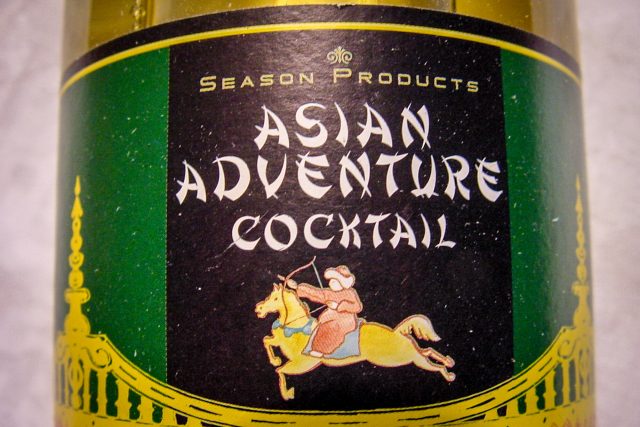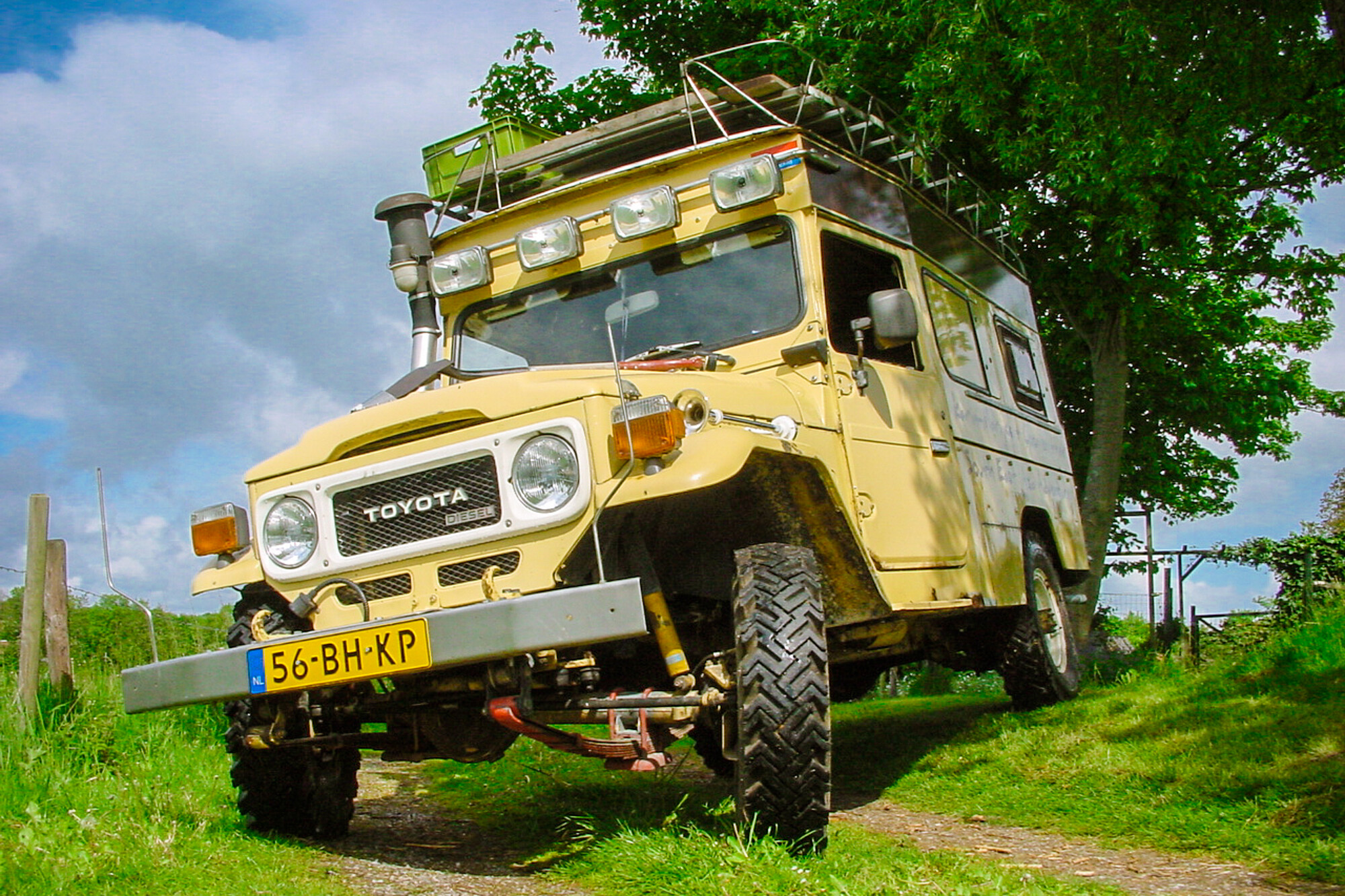Two weeks before the start of our overland adventure, my mother and I went to Spain for a week. Coen was flabbergasted. Buried in a list of things he felt needed to be done, he couldn’t understand why I went on vacation. On the other hand, I didn’t understand what all the fuss was about. Couldn’t we just throw a bag with clothes in the Land Cruiser and leave?
I may arguably have been the most relaxed person in the world before starting an overland journey.
When Coen and I decided to sell all we owned, buy an old, cheap vehicle and drive from the Netherlands to Southeast Asia, we had known each other for less than a year, and living 200 kilometres apart, had seen each other only on weekends. There was still a lot we needed to learn about each other.
We found the rusty Land Cruiser in Germany and picked it up late January, exactly four months before I handed over the keys of my house to its new owners. Since we both still had to work for another two months, we had that time to prepare for the trip. As we reflected on our journey a while back, we got to talking about the preparation phase and some of the FAQs we get about starting an overland journey.
What would you do differently if you were to start your journey today?
What gear and equipment have been a good investment, and what hasn’t been?
Do you feel you have changed a lot? If so, in what way?
Isn’t it dangerous to travel to “these scary countries”?
Here are our thoughts. As with so many how-to related topics, I’d like to stress that there isn’t one perfect way of doing things (shown in some of our contrasting responses). This is a reflection on how we started our journey, which may be of inspiration/help to future overlanders who are pondering the same or similar questions.
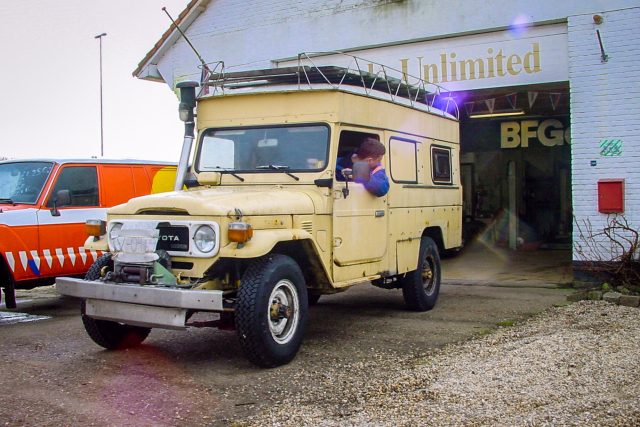
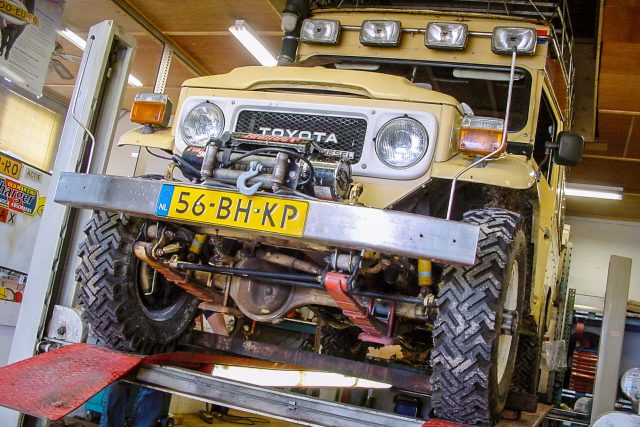

What would you do differently if you were to start your journey today?
Coen:
- Find a vehicle with more space inside, for example, an old VW bus or Citroën that has more living space.
- For some reason(s), we opted to go as fast and straight as possible toward the east, Greece, and Turkey, from where we felt our journey would really start (and we slowed down from there). I think we missed out on Eastern Europe, and in retrospect, wish we had taken our time there, too.
- Document our journey better. A great deal of photography from the first years of our travels is lacking, particularly of the Land Cruiser. The car was just a means of transport, and I didn’t realize how it was to become such an integral part of our journey. Now it feels something is missing, like not having pictures of the early years of your first-born.
Karin-Marijke:
I look back at the preparation phase with a big smile. Sure, it was chaos. I spent my two months before departure going from farewell party to farewell party and was having a blast. It was such a joy to get rid of everything, to leave a part of my life behind that had been so full of struggles, tears, and pain that I was pretty much in a state of euphoria.
The morning of our departure, nothing had been packed. The Land Cruiser tilted way too much to one side for the first couple of days because we had never thought about balance. We had a number of repacking sessions during that first week. I had been rigorous in throwing stuff away—I have the impression we are among the few who did not have the struggle in the beginning of the journey of carrying too much stuff. On the contrary, we had to buy some basic things during that first week, e.g., sheets, which we had simply forgotten to bring. And all that was just fine with me.
As to the start of our journey, we knew we were going to drive to Southeast Asia. Exactly how, we didn’t know, and we left with a guidebook of Greece and a roadmap of Europe. That feeling of truly not knowing what lay ahead is one of my fondest memories; in a way, I wish I could go back to knowing so little.
Tip
Don’t forget to enjoy the preparation phase and know that no matter how much you do, you probably won’t get everything done. Just pick a departure day and go.
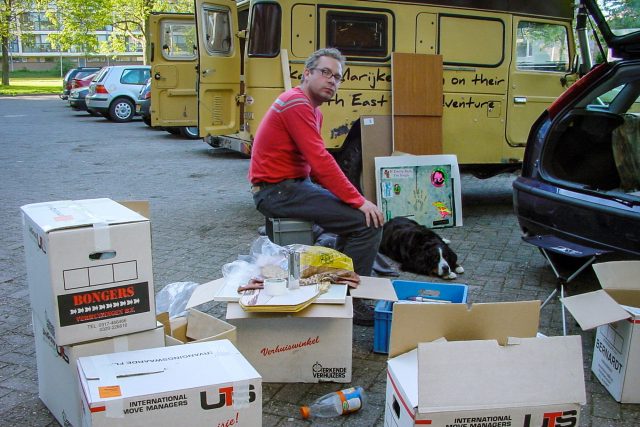
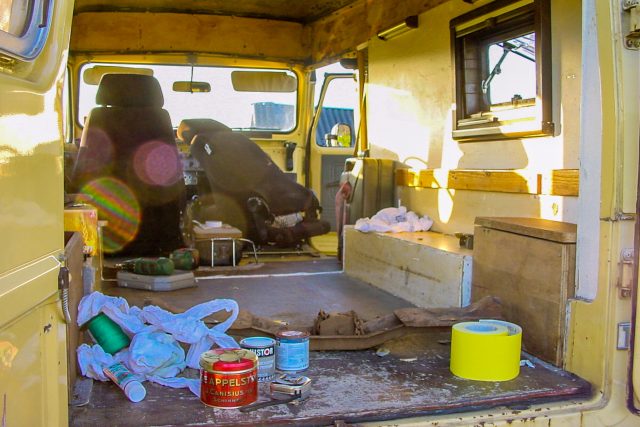
What gear and equipment have been a good investment, and what hasn’t been?
Coen:
The Good
- Pressure cooker (bought after a couple of months to be able to cook at high elevation)
- Coleman stove (because of our crossing into many different countries without knowing if we could get propane gas filled, we opted for the unleaded gasoline version)
- Sturdy water-storage (2 20-liter jerry cans + 1 10-liter shower bag)
- MSR water filter
Not good
- Camping equipment (The chairs and table took up way too much space and were later replaced by smaller versions.)
- Oil lamp that leaked (we had to burn all the oil before storing it)—ditched it
- Storm Kettle (aka Kelly kettle, Volcano kettle) which took up too much space just for boiling water—ditched it
Karin-Marijke:
The winch that came with the Land Cruiser was useless (12-volt), and Coen swapped it for a secondhand 24-volt one. It never worked either. On the other hand, the Hi-Lift jack has been a great piece of equipment during our off-road adventures.
I never understood Coen wanting hi-beams or the extra horn on the outside—they don’t serve a purpose other than giving character to the Land Cruiser and being great conversation pieces (“Honk the horn, please!”). The shovel on the bonnet also adds to the Land Cruiser’s character, and I now appreciate how Coen (graphic designer and artist) turned a very boring looking car into one that brings a smile to people’s faces.
The interior was (and still is) simple with two benches for our stuff and planks to put in the middle to make the entire rear into a big bed. The intention was to leave the middle part empty. Due to a total lack of planning and packing, that part got jammed with the too-big table, chairs, and other stuff. Over the years, we have done some renovations, and the interior has become more comfy and spacious. This is nice in the colder climate we are currently traveling in but wasn’t necessary during those first years of traveling in the tropics.
Tips
- Invest as little as possible in gear and equipment. Spend your money on traveling instead.
- Expect not to have the perfect kit right from the beginning and to have to make changes as you go.
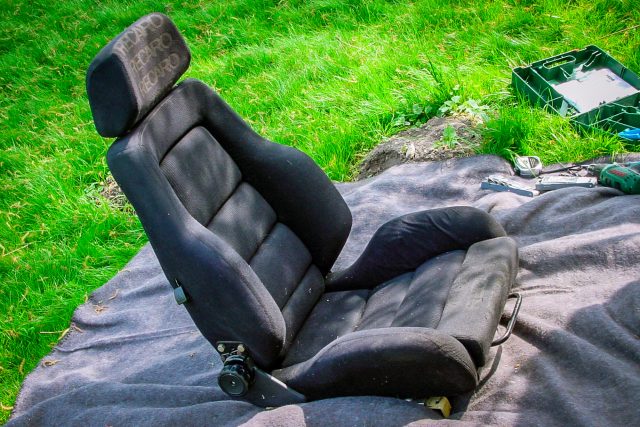
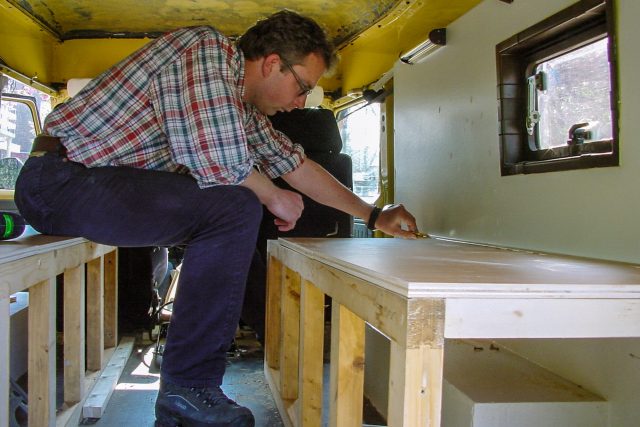
Do you feel you have changed a lot? If so, in what way?
Coen:
Culturally, I have gained so many insights: We are all citizens of the same planet, yet living in completely different circumstances. We have all influenced each other over the ages as a result of travel and trade. Most people in the world are good and are not out to rob or kill you.
I also learned to lower my expectations. The fewer expectations I have about a certain place or service, the more surprised I may be. Additionally, it saves me from getting incredibly frustrated.
Karin-Marijke:
I left with a sense of fear of where we’d go, the people I’d meet, the food I’d eat. Would people be friendly, would we get food poisoning, would ‘it’ (basically, the world outside familiar Europe) be safe? I had all the worries that many newbie overlanders recognize. I kept all those emotions hidden under a layer of excitement and a sense of relief to be away from a life that no longer fit me. But there was no hiding forever, and those fears surfaced full force as soon as we exited Europe.
In particular, Iran (the third country on our trip), brought about a deep culture shock, and it was a lot of work to go deep inside myself to confront my fears and, ultimately, let them go. Being an introvert and often shy person didn’t help. Accepting that part of myself took time (all the more so since I was traveling with such an extroverted and un-shy person, and thus constantly saw how much easier life is when you connect easily with everybody).
At the same time, I’ve grown in a sense that many overlanders (travelers) will recognize: seeing the good in so many people of all walks of life; having so many wonderful experiences and helping hands when the going gets tough, giving me confidence and faith in people; and to trust that “things” will be alright no matter how bad they seem (without ignoring that, yes, s**t happens).
My vision of the world has certainly changed (how much through traveling or simply through life experience, I’m not sure), mostly in the acknowledgment that the world and our society are much more complicated than they often seem.
Tips
- Reach out to other travelers when all kinds of uncertainties and fears overwhelm you. You aren’t the first and won’t be the last. With online communities such as Facebook groups, it’s very easy to find people who will listen, understand, and encourage you.
- If not in the online community, find places where you’re likely to meet other overlanders. Every continent has certain typical meeting points (e.g., cities where people have to organize visas); iOverlander is a great app for this.
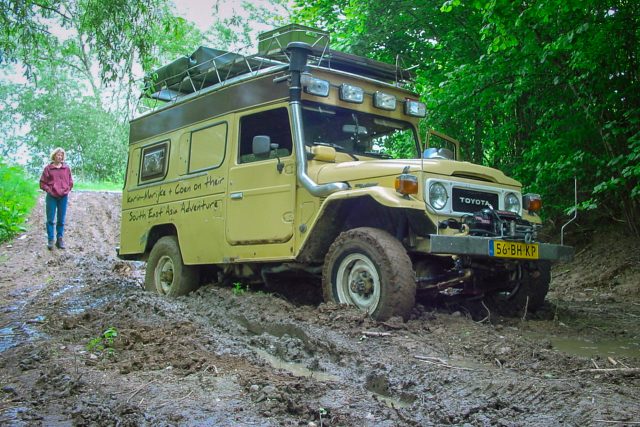
Isn’t it dangerous to travel to these scary countries?
Coen and Karin-Marijke:
While mainstream media are one of the tools to find out what is happening in the world, realize it’s just one tool–one that often only scratches the surface, sharing the (negative/horror) stories that people want to hear and read (which, unfortunately, sell best).
Many overlanders have experienced that a country, region, or group of people are more complex than that. That most people are kind, willing to welcome you, share with you, and help you. It’s possibly one of the most important lessons we all learn in our travels.
Having said that, yes, in some places you need to take more care where to park, camp, or walk than in others. Statistics on crime do tell a story. It’s about finding a balance between being prudent and open to new experiences, and perhaps not knowing too much about where you are going to keep that open mindset.
Those “scary” countries may be among the most surprising on your journey. In our case, they were Iran, Pakistan, Brazil, and Colombia. All have a bad reputation for different reasons, but they turned out to be home to the friendliest, most welcoming people on our trip.
Tips
- Show respect and adhere to the local rules of conduct, including adapting your clothes or ways in which you normally move about.
- Keep in mind that you are guests, and although there may be some leniency towards a foreigner, never take things for granted.
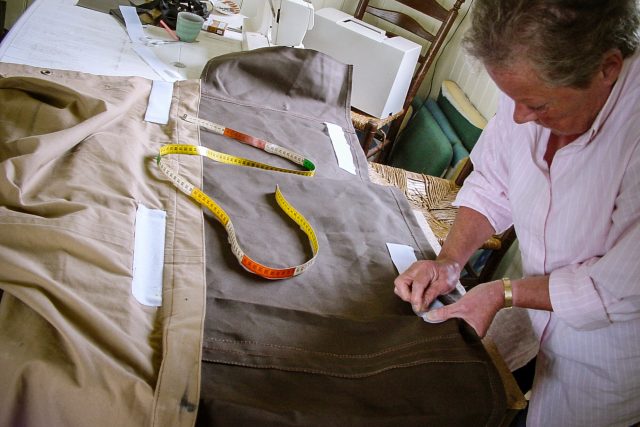
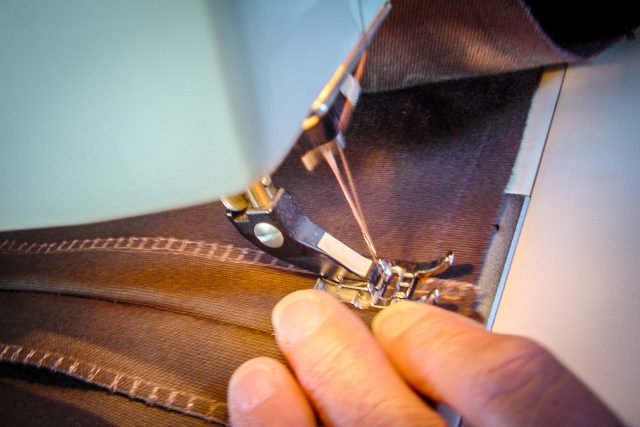
The Start of Our Journey
To conclude, the start of our journey did have a touch of what I said earlier: “Can’t you just throw some clothes in the car and leave?”
As we got up at 6:00 a.m. on the morning of our departure, nothing had been packed yet. Everything was still on the floor in piles of “must bring” or “if space may bring.” The house needed to be cleaned, stuff taken to the dump, a man came to pick up the Coen’s motorcycle which he had sold only that week, a piece of metal needed to be welded in the Land Cruiser with the help of a neighbor. We had four hours to do all of this before the new house owners would arrive.
So, yes, we literally threw all our stuff into the Land Cruiser and on the roof, deciding we’d figure it out later. When the new owners arrived, I turned on the coffee machine, realized the fridge was still full of food, and threw all that into the Land Cruiser, too.
We were ready to go. Granted, with a long, long list of things yet to be done, but that was okay. Our adventure started on May 31, 2003, and today, 17 years later, still hasn’t ended.
